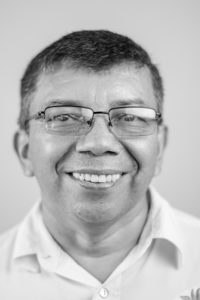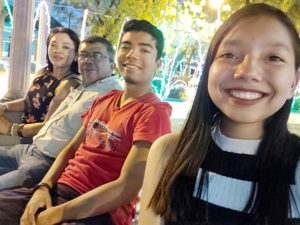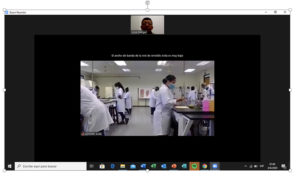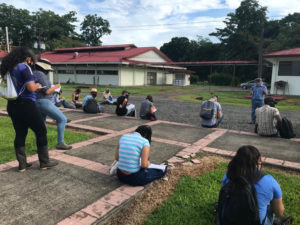Socially distanced from EARTH: A professor’s journey to adapt
In December 2019, EARTH University Professor José Cristino Melgar was set to begin a sabbatical in Honduras, his birth country. He, his wife Martha, and their two grown kids packed everything needed to spend a few months away from their on-campus home. They drove for two days, from Costa Rica, through Nicaragua, and into Honduras. The plan was to have their children board a return flight to Costa Rica in January to resume their university studies, while José Cristino and Martha would stay in Honduras until mid-April.
But, only a few months later, COVID-19 hit Central America. The plans of the Melgar family – and the world at large – had to evolve.
At EARTH, Melgar teaches plant pathology. During any pre-pandemic class, you could find him and his students wearing knee-high rubber boots on the academic farms of our Guácimo Campus, donning whitecoats in the laboratories, or sporting EARTH apparel while on educational tours across the country. When he returned to work in April, he could be found only via the internet. He went back to teaching about crop diseases – albeit virtually – after adapting his curriculum to the new medium. It was not easy for him, he says, but he has learned to see every turn as an opportunity – not a stumbling block or cause for excuses.
He references a time in high school, when he refused to learn to speak English because he did not like U.S. politics. In time, he realized that his stubbornness was closing many doors, limiting his possibilities. He sought to learn English and eventually earned two degrees from U.S. universities – his master’s from Mississippi State and his doctorate from Purdue.
Similarly, Melgar says he refused for many years to learn about digital tools. He thought his time-tested method of teaching was already complete and in need of no alterations. At the pandemic’s onset, however, he realized that doors were closing again because he had rejected virtuality. In response, he endeavored to update himself and learn about digital tools. Since then, he has used his photo collection to help demonstrate important topics in his class and led virtual tours in which he shows the common diseases of traditional crops in a certain place, among other digital efforts.
When students began the hybrid online/in-person learning modality at EARTH, Melgar was still stuck in Honduras. He taught classes via Zoom while his students were physically in the on-campus lab. Using two computers, he followed the learning processes of his students, monitored their activities, and guided them toward obtaining the expected results. Despite the distance, Melgar managed to be resilient and adapt to the conditions – just like his students did.
On August 23, after several long months of sheltering-in-place in Honduras, the Melgars managed to cross the borders and return to campus, where they preventively self-quarantined, as requested by the Costa Rican Ministry of Health. Now that he has adapted to this ‘new normal’, Professor Melgar appreciates the education the experience enabled.








